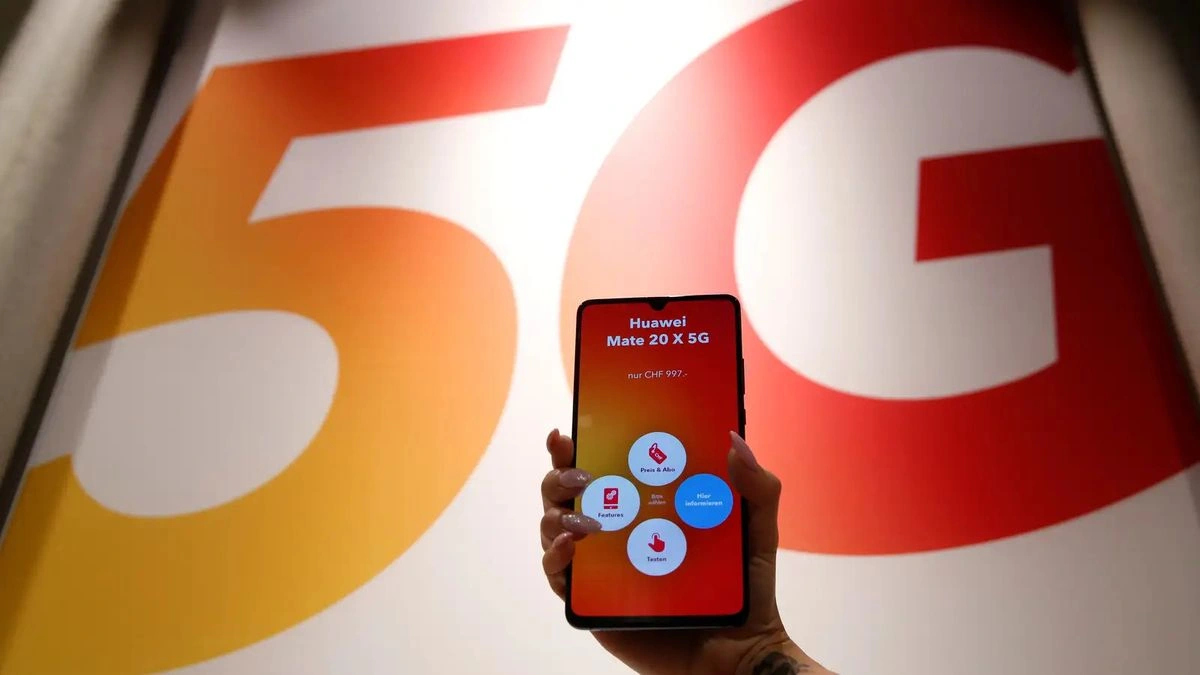Case Study Blog- South Africa Smartphone Adoption

Chinese brands are leading the African 5G smartphone market
In today’s world, a life without smartphones becomes daunting, almost like being left in a world with your eyes closed. Who would have thought a tiny device invented in 1992 would end up becoming such an integral part of our lives? The reliance on smartphones has gone so far that it is almost impossible to stay away from them; it's like an extension of the human body.
By the end of 2023, there are projected to be 6.92 billion smartphone users worldwide, which equates to 86.11% of the world's population. The rapid adoption of this innovation, typically driven by breakthroughs in technology and digitalisation, supports the strategic objective and eventual success of 5G smartphones.
Unveiling the network of 5G Smartphones
In 1992, IBM produced the first smartphone, which had a touch screen, a calendar, and fax and email sending and receiving capabilities. It was called Simon Personal Communicator. Smartphones didn't start to become commonly used, though, until the early 2000s.
In 2002, the first BlackBerry was introduced, enabling users to send and receive emails on their phones. Business executives who wanted to be in touch while traveling rapidly embraced the BlackBerry. This small yet impactful start was the beginning of a pivotal era, an obsession that has led to the advent of 5G smartphones.
The fifth generation of mobile network technology, or 5G, offers greater capacity, reduced latency, and nearly lightning-fast download and upload rates than earlier generations. The Samsung Galaxy S23 Ultra, iPhone 14 Pro Max, OnePlus 11 5G, and Google Pixel 7 are a few of the popular 5G smartphones in 2023.
Although 5G technology is still in its early stages of deployment worldwide, there is growing interest in 5G smartphones due to their faster speeds and improved connectivity, particularly for applications that need high bandwidth, low latency, and high reliability, like VR, AR, autonomous vehicles, and are compatible with the Internet of Things (IoT).
Who fathered the 5G Network?
5G telecommunications technologies were neither created nor developed by any particular company. Rather, numerous businesses from all over the world worked to build 5G networks and mobile broadband technology.
Since the creation of 2G networks, all of these companies have come together to form the 3GPP (3rd Generation Partnership Project), an umbrella organization that develops, maintains, and regulates telecommunication technologies.
Several businesses currently develop and distribute 5G radio hardware and systems to mobile phone providers.
How do 5G Smartphones affect the economy?
The 5G smartphone is considered the most appealing option currently on the market, with cutting-edge connections and improved user experiences. These smartphones offer extremely high internet speeds, decreased latency, and increased network dependability. According to Extrapolate, the Global 5G Smartphone Market size is projected to reach USD 76.9 billion by 2028, exhibiting a robust CAGR of 21.6%.
As more African nations continue to test 5G networks, citizens are upgrading from 4G- to 5G-enabled smartphones so they can get involved in what Big Tech believes will be the spark that ignites the global digital economy.
Despite Africa's slow progress in building the 5G network infrastructure, interest in joining the next stage of the internet revolution is still high. According to second-quarter data released by the International Data Corporation (IDC), a US-based tech research company, Chinese companies are leading the market competition among 5G smartphone manufacturers to meet this demand.
Is Africa Ready for 5G Smartphones?
While the rest of the world is celebrating the adoption of 5G smartphones, some might find the question weighing heavily on Africa due to its slow growth.
According to several scholars and business leaders, Africa may still have some way to go before it adopts 5G due to a number of issues, mainly infrastructural and economic development. More than 1.3 billion people live in Africa, and the majority of its markets have populations of 5 million or more.
According to the African Development Bank (AfDB), the pandemic drove approximately 30 million Africans into extreme poverty in 2021, and the Russia-Ukraine conflict will push an additional 3.9 million into poverty by 2023.
Currently, 4G networks cover 76% of the continent's population, although connections to these networks average barely 25% of all connections, compared to 60% internationally. The focus of operators in Africa in the near future will be on boosting 4G uptake, as 4G adoption is still underway and there is a huge underutilized 4G capacity.
Other industry leaders argue that, despite potential difficulties, 5G has the ability to considerably boost the economic strength of African countries. Although it is evident that 5G adoption on the continent is still in its early stages, some nations, including South Africa and Nigeria, have started conducting tests and deploying 5G networks.
The IDC states that shipments of 5G devices rose by 26.9% in Q2 2022, and their market share is expanding as key companies add more 5G products to their portfolios.
How strong will the signal be for 5G smartphones in the future?
After a strong start, experts foresee a strong growth momentum for 5G adoption in high-growing markets in Sub-Saharan Africa in 2023. The magnitude of the coverage gap is frequently related to the revenue possibility for mobile operators working with satellite firms. This suggests that Africa has the highest potential for increasing revenue.
Africa is rich in renewable resources because it is the continent with the most unconnected people (130 million, or 15% of the adult population). However, due to currency devaluation, operators in this region are also among the most financially strapped and subject to increasing equipment prices. The aforementioned concerns could slow down the growth of satellite partnerships.
With Ericsson pledging to promote a world where Africa will have access to the newest technology, the future of 5G Smartphones in Africa seems bright. Additionally, the Mobile Economy research asserts that Sub-Saharan Africa will be the first region to experience 5G rollout and that 5G SA holds the possibility of providing a variety of services in Africa. Qualcomm also intends to promote 5G as a feature in widely available smartphones.
All things considered, in the global race to be 5G-compatible, Africa will definitely be on the line to connect.
This article was contributed by Aparna M.A, you can contact her via aparna@kingsresearch.com
Like this project
Posted Mar 5, 2024
Despite Africa's slow progress in building the 5G network infrastructure, interest in joining the next stage of the internet revolution is still high.
Likes
0
Views
9
Clients

Condia (fka Bendada.com)







